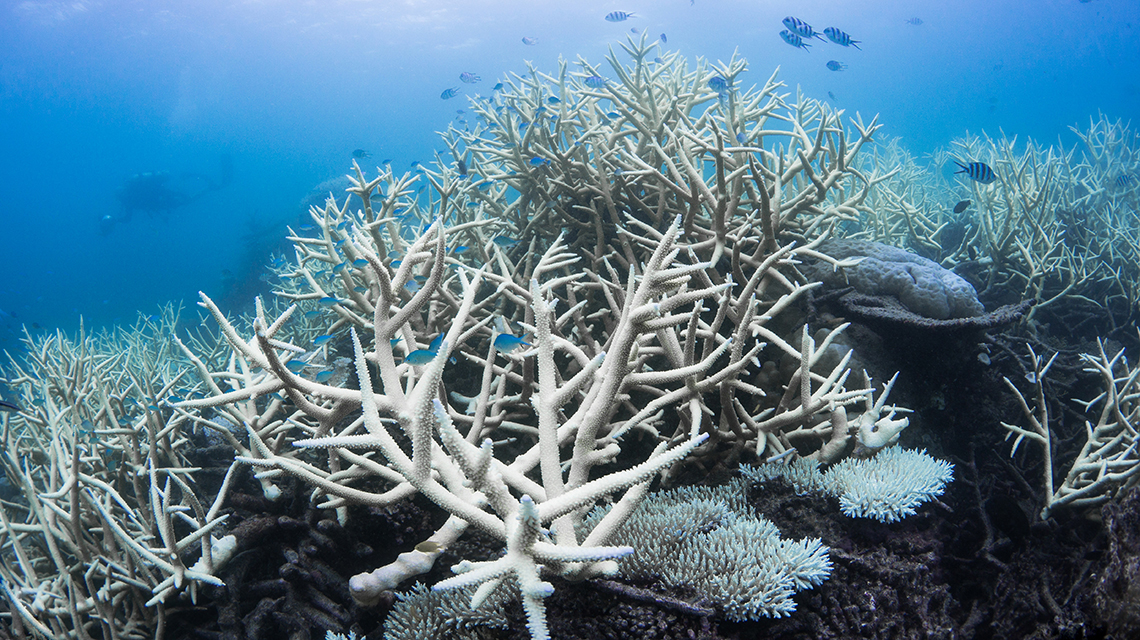Dr. Marguerite Koch-Rose, Professor of Biological Sciences at FAU and a principal investigator at the FAU Marine Lab, studies ocean acidification threats to chalk algae. The marine macroalgae skeletons that Dr. Koch-Rose investigates are made up of calcium carbonate (CaCO3), the same as chalk. Every year, about 40 billion metric tons of carbon dioxide (CO2) is added into the atmosphere from burning fossil fuels and at least 25% of that is absorbed by the ocean. The extra dissolved CO2 leads to an increase in hydrogen ions (H+), which means the ocean is more acidic (has a lower pH). This lowers the amount of biologically important minerals necessary in healthy ecosystems. Calcium carbonate, or chalk, is crucial in the calcification, or hardening, of the skeletons of numerous plants and animals and critical for the building of coral reefs which are inhabited by countless species of fish. The acid conditions from the added CO2 results in more hydrogen ions binding with calcium carbonate to form bicarbonate (HCO3), debilitating the production of strong skeletons and healthy coral reefs. It is because of this that it is crucial to reduce the production of CO2 and keep it out of the oceans. It’s important to note that this is more prevalent in the summer because warmer waters also become more acidic. Dr. Koche-Rose’s research is helping further understand how ocean acidification is impacting photosynthesis, growth and calcification in tropical reef macroalgae and elucidating the far-reaching ecological consequences of these impacts.

Photo: The Ocean Agency/Ocean Image Bank